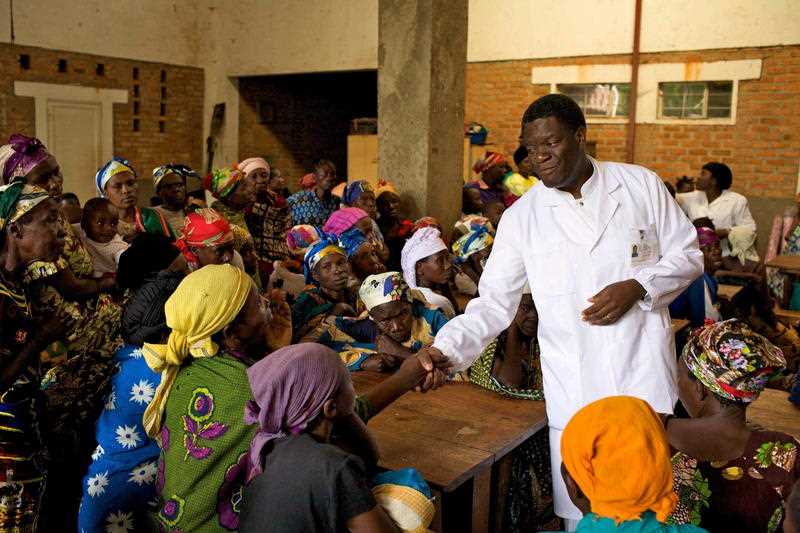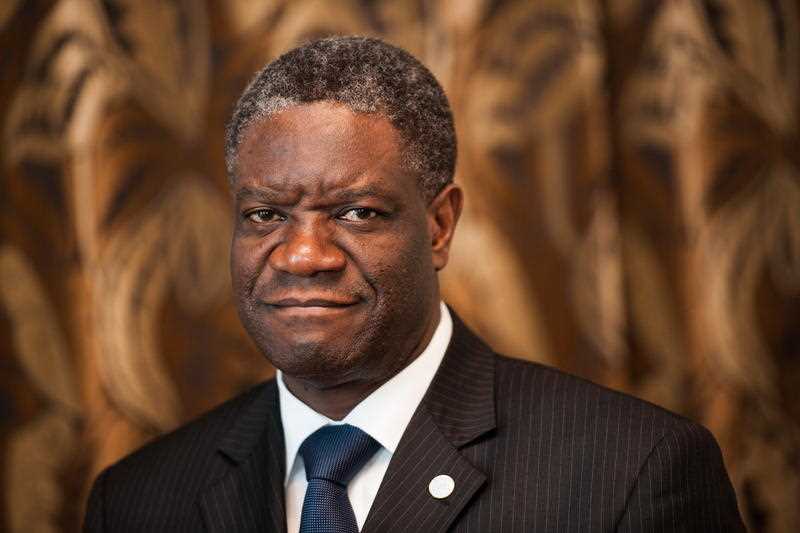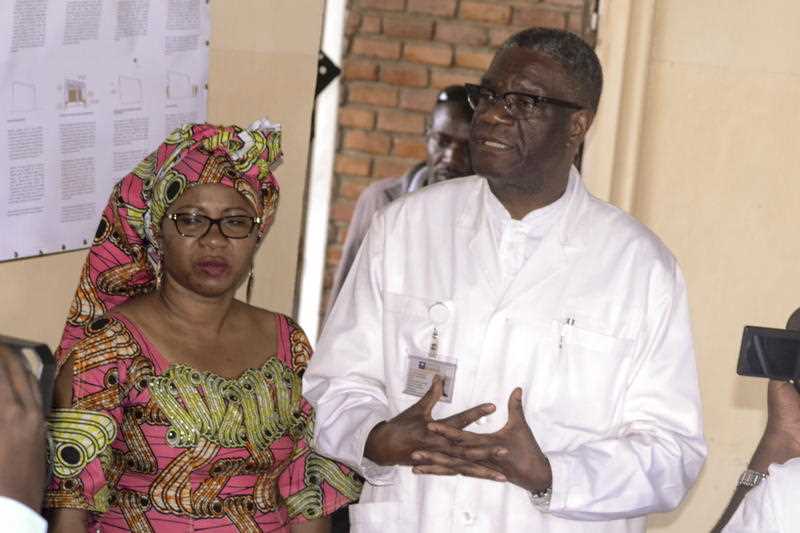Dr Denis Mukwege, who was awarded the Nobel Peace Prize on Friday, is a large man with a squarish face.
The first time I met him, more than 10 years ago, he was emerging from the operating room, still wearing his scrubs. His eyes were bloodshot, and he looked exhausted.
Marauding rebels had just swept into his area of eastern Democratic Republic of Congo and attacked the villages. Hundreds of wounded people had somehow made their way to the hospital Dr. Mukwege ran. As a gynecologist, his specialty had become repairing women who had been raped with extreme violence.
He led us down a long hallway, beneath ceiling fans that didn’t work. Countless women clogged the corridors, leaning against the walls and holding colostomy bags, lying listlessly in beds, sitting on the floor in pools of urine, their reproductive and digestive tracts ripped apart. This is the ongoing horror Dr. Mukwege faces day in and day out.
Several years ago, United Nations officials called Congo the rape capital of the world. What was especially disturbing was the flamboyant brutality of the rapes that eviscerated the insides of many women. “When the victims come, you can tell by the wounds where it happened,” Dr. Mukwege said. “In Bunyakiri, they burn the women’s bottoms. In Fizi-Baraka, they are shot in the genitals. In Shabunda, it’s bayonets.”
“When the victims come, you can tell by the wounds where it happened,” Dr. Mukwege said. “In Bunyakiri, they burn the women’s bottoms. In Fizi-Baraka, they are shot in the genitals. In Shabunda, it’s bayonets.”

Congolese gynecologist Denis Mukwege has been recognised with a Nobel Peace Prize for his work with victims of violent rape. Source: Supplied
“Some of these girls whose insides have been destroyed are so young that they don’t understand what happened to them,” he said. “Why would you ever rape a 3-year-old?”
He spoke in almost a whisper, as if he knew he would be facing bigger battles and needed to conserve every ounce of energy — or maybe he had none left.
But Dr. Mukwege, who at that time was performing around 10 lifesaving operations a day at his hospital near the front line, exuded a faint but perceptible inner glow, a sense of calm, an aura of complete serenity.
There was something tremendously empathic in how his eyes rested on people. It seemed to flow from the knowledge that he was doing just about all that was humanly possible to help others.
Over the years, his profile grew. He still performed countless lifesaving operations, but he also began to speak out. He became a champion for the millions of abused women in his country. Many factors had conspired against them: the spectacular rot within the government, the corruption and brutality in the armed services, the proliferation of guns, the fragmentation of rebel groups and the lowly status of women and girls in Congolese society.
He became a champion for the millions of abused women in his country. Many factors had conspired against them: the spectacular rot within the government, the corruption and brutality in the armed services, the proliferation of guns, the fragmentation of rebel groups and the lowly status of women and girls in Congolese society.

Dr Mukwege and Yazidi Kurdish human rights activist from Iraq Nadia Murad won the 2018 Nobel Peace Prize. Source: EPA
He blamed the rebels for their inhumanity and the men in the Congolese government for watching the brutality impassively. It was only a matter of time before someone tried to kill him. One night in 2012, a gunman broke into his house and nearly shot him to death.

Nicknamed "Doctor Miracle", he has been a passionate advocate on ending sexual violence in war zones as "a weapon of mass destruction". Source: EPA
At the end of that first interview, Dr. Mukwege walked outside to say goodbye. He was polite, humble and thoughtful. He gazed out at the lush green hills.
“There used to be a lot of gorillas in there,” he said. “But now they’ve been replaced by much more savage beasts.”
Jeffrey Gettleman was the East Africa bureau chief of The New York Times from 2006 to 2017.
